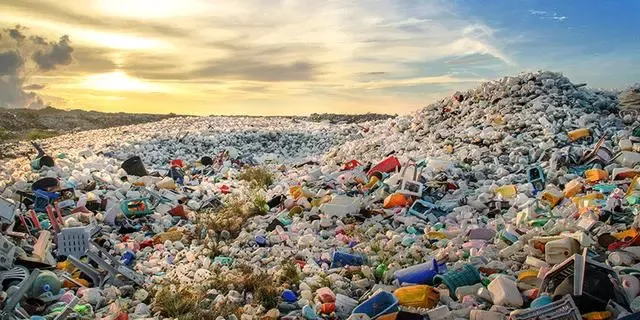In our daily life, plastic bottles and glass bottles are common containers and common garbage. Many people know that plastics have an impact on the earth’s ecological environment. Glass bottles aren’t quite as “so” as one might think, however, according to a study. Environmental friendly”

plastic
According to statistics, about 500 billion plastic bags are used in the world every year, most of which are discarded or incinerated after use, and these plastic bags are usually non-degradable and can only exist in the natural environment for a long time.In addition to plastic bags, disposable plastic products are also rampant. About 1 trillion single-use plastic tableware is produced globally every year. They cannot be reused and most are thrown away immediately after use. These plastic products can easily enter the water, endangering aquatic life and marine ecosystems. For example, there is a huge patch of floating trash in the Pacific Ocean, made up of huge amounts of plastic.

Not only the oceans, plastic pollution is also wreaking havoc on terrestrial ecosystems. People discard plastic bottles and packaging in the natural environment, causing land pollution and harming wildlife. According to statistics, the world produces more than 30 million tons of plastic waste every year. This waste decomposes very slowly and releases harmful substances.
Plastic pollution has become a global problem, which is why, in most people’s perception, plastic products such as plastic bags, plastic bottles, and plastic packaging are very harmful to the environment and ecology.
glass
A British study pointed out that glass bottles are not as “harmless to humans and animals” as people think, and the whole process of glass bottles from production to recycling will also have a great impact on the environment,
The production of glass bottles requires large quantities of raw materials, mainly silica, sodium carbonate and limestone. These raw materials usually need to be obtained through mining activities. The mining process not only causes damage to the geological environment, but also consumes a lot of energy. This not only leads to land destruction and loss of biological habitat, but also increases the risk of greenhouse gas emissions and air pollution.

Making glass bottles involves melting raw materials at high temperatures and blowing the molten glass into the shape of the bottle. This process requires a lot of energy, usually using fossil fuels such as coal, natural gas or oil. Burning energy also exacerbates climate change and air pollution problems. At the same time, the combustion of fossil fuels also releases harmful gases and particles, which are harmful to the environment and human health. In the manufacturing process, it can be seen from the above points that the harm of glass bottles to the earth’s environment is mainly reflected in the production process of glass bottles.
Who is more polluting, glass bottles or plastic bottles?
Studies have pointed out that the production of glass bottles is more polluting, and even the transportation process consumes more energy due to the weight of glass bottles. But the main reason for the promotion of glass bottles is its recycling advantages and the advantages of plastic bottles. During the recycling process, plastic bottles may cause more environmental pollution than glass bottles. Firstly, the recycling of plastic bottles needs to be sorted and sorted so that different types of plastics can be efficiently recycled and reused. This process requires a lot of human and mechanical equipment.
Plastic bottle recycling involves the reprocessing and recycling of plastic. This usually involves melting and processing plastic to convert waste plastic into new plastic products. The process may require the use of energy and chemicals, and may generate pollutants such as exhaust air, wastewater, and solid waste.
Glass bottles can be recycled and reused, reducing waste, while recycling rates for plastic bottles are relatively low globally. Large quantities of plastic bottles are often thrown away, and plastic bottles degrade slowly, taking decades or even centuries to break down, releasing harmful microplastic particles in the process.
Glass is an inorganic substance that does not decompose or degrade and has no negative impact on the environment in this regard. By recycling glass bottles, you can reduce the demand for raw materials, that is to say, instead of producing glass bottles all the time, you can continue to recycle old glass bottles, which can effectively reduce energy consumption and reduce waste. Production.
At the same time, taking appropriate environmental protection measures and technical improvements can minimize hazards in the recycling process and ensure the safety of the environment and workers. In addition, glass is also a key component of the circular economy, as recycled glass can be reprocessed into new glass products such as new bottles, fiberglass, glassware, etc. These recycling methods can extend the life of glass.
